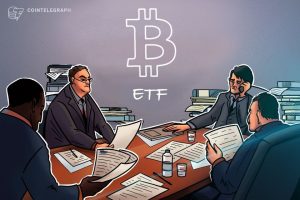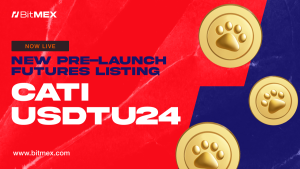
With the rise of remote work and a shift in attitudes towards work, DAOs provide an alternative approach to finding and participating in work opportunities.
Decentralized autonomous organizations (DAOs) are blockchain-based entities that are collectively owned by their members. These organizations have the potential to change the way we think about employment and recruitment in the future. With the rise of remote work and a shift in attitudes towards work, DAOs provide an alternative approach to finding and participating in work opportunities.
The decentralized and autonomous nature of DAOs allows for a more transparent and democratic system, where members can vote on the organization’s politics and direction, and work is shared through open-source forums. Additionally, the ability to earn tokens that can be exchanged for cash, and the lack of a traditional resume requirement, align with the demands of younger generations for more agency and ownership in their employment. With more and more companies beginning to explore the use of DAOs, 2023 is being dubbed “The Year of the DAO.”
The idea of democratization and globalization has been a driving force in the crypto era. DAOs, with their ability to build worldwide companies and communities, have been growing in popularity since their inception in 2016.
DAOs are significant because they offer a new way of thinking about employment and recruitment. They provide a more democratic and transparent system, where members can vote on the organization’s politics and direction, and work is shared through open-source forums. This allows for a more collaborative and open system where members can contribute to the organization based on their skills and experience.
Winds of change in recruitment trends
The trend changes in recruitment are driven by advancements in communications technologies and global networking. Remote working has become significantly more feasible, and this has opened the minds of many companies to the idea of a globalized vision of the future. This has been further accelerated by the Covid-19 pandemic, which has forced companies to adopt remote working as a necessity rather than a preference.
Additionally, there has been a generational shift in attitudes toward work. Younger generations are demanding more agency and ownership of their own employment. This is reflected in the increasing popularity of short-term contracting, at-home working and freelance appointments. According to statistics released by the World Bank, nearly half of all workers worldwide are freelancers, and 70% of them are aged 35 and under.
Join the community where you can transform the future. Cointelegraph Innovation Circle brings blockchain technology leaders together to connect, collaborate and publish. Apply today
The methods by which employees find work, and indeed companies find workers, are also becoming more digital. The company Undercover Recruiters predicts that AI will play a major role in recruitment processes in the near future. This can give employees the agency and ownership they desire.
Employees can be as involved with the company as they wish and garner certain benefits as they go. The more work they do for a specific DAO, the more tokens they earn. The more tokens they earn, the more they move up the company organically with more voting power on how it is managed. Companies are fully transparent with all of their policies, procedures, visions and code presented using open-source facilitation. This is the same for the experience and skill of the workers themselves. However, with DAOs, resumes are not required.
Goodbye to resumes
The open-source nature of DAOs means that all the experience and output created by professionals is available for all to see on the blockchain, effectively creating a digital portfolio. This could potentially render the traditional resume obsolete and mark the end of the CV.
Candidates can also benefit from the transparency of DAOs, as they can see the organization’s mission, vision and reputation before applying for a position. This is particularly important as a company’s mission and purpose are becoming increasingly important to job seekers. A survey by Glassdoor in 2019 found that 79% of people consider a company’s mission and purpose before applying for a position, with half of them placing it above salary in terms of priority.
The rise of digital communication and online communities are also contributing to the popularity of DAOs. Many DAOs hold social events for their members, both online and offline, creating a sense of community and belonging. Well-established DAOs such as Cabin create a network and community of people who live and work together in various locations, holding social events where possible. Meanwhile, FWB (Friends with Benefits) often holds events in real life. This is becoming increasingly important as more and more people are working remotely and looking for ways to connect with others.
Hiring in Web3
The trend toward transparent organizations has had a significant impact on the way companies hire. No longer are hiring managers limited to a brief LinkedIn profile or a selective portfolio, as they can now gain a deeper understanding through their wallet activity. While LinkedIn provides an overview of a candidate’s professional experience and achievements, it may not always offer a complete understanding of their expertise in crypto.
On the other hand, examining a candidate’s wallet activity gives hiring managers a glimpse into the specific tokens and projects they have worked on, their level of investment in the industry and their overall familiarity with decentralized systems. Moreover, it can shed light on a candidate’s personal values, financial responsibility and spending habits, offering a well-rounded view of their qualifications. This information, in conjunction with traditional methods, can assist hiring managers in making more informed decisions.
On-chain work platforms are pushing this concept to the next level by allowing companies to review a freelancer’s past experience, communication skills and even the number of attempts made before submitting the final work. This gives a more nuanced view of a candidate’s work history and experience, helping companies make more informed hiring decisions.
A digital future for employment
The future is digital, and the recruitment world is no exception. Social media, Web3 and the internet as a whole have created a demand for information and opportunities to be available with elements of transparency, security and accessibility. The traditional methods of recruitment are becoming obsolete, and DAOs are leading the way in creating open, free and democratic employment opportunities for everyone.
Moshe Lieberman, founder and CEO at Share.
This article was published through Cointelegraph Innovation Circle, a vetted organization of senior executives and experts in the blockchain technology industry who are building the future through the power of connections, collaboration and thought leadership. Opinions expressed do not necessarily reflect those of Cointelegraph.
Learn more about Cointelegraph Innovation Circle and see if you qualify to join





















